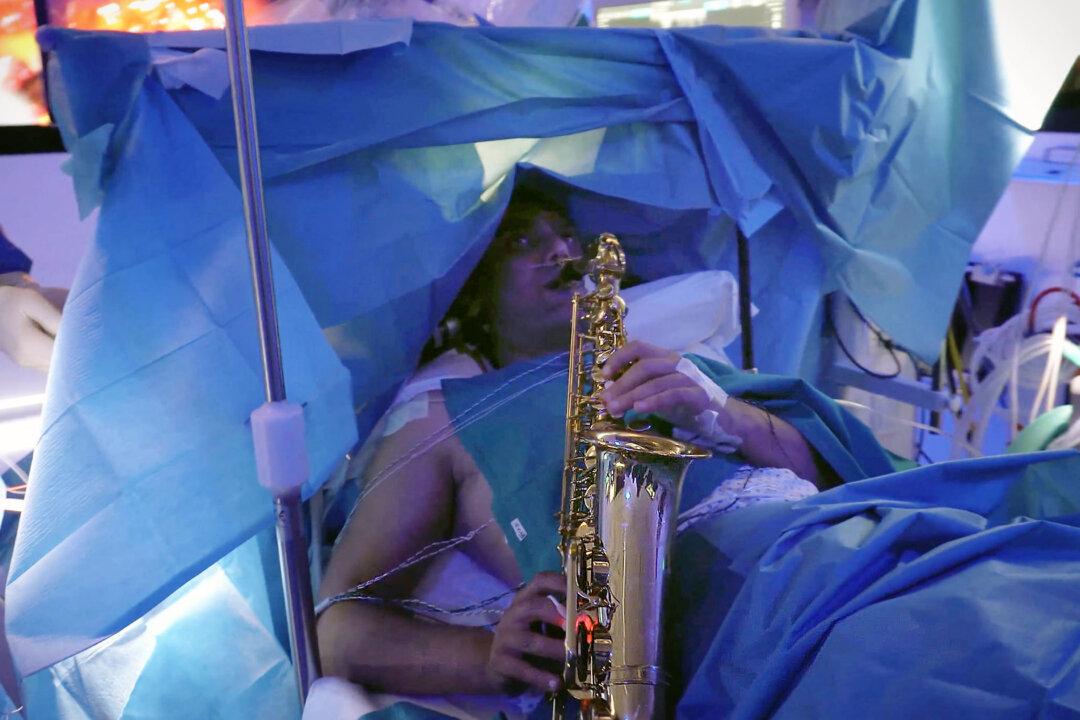In an intricate “awake” brain surgery, a musician underwent a marathon operation in a private hospital in Rome, remaining conscious the whole time. Not only that, but amazingly he played a saxophone throughout the 9-hour procedure, in one of the first surgeries of its kind ever done.
A surgical team led by Dr. Christian Brogna, a neurosurgeon specializing in complex cancers and awake surgeries, performed the removal of a brain tumor from the 35-year-old man at Paideia International Hospital on Oct. 10.





